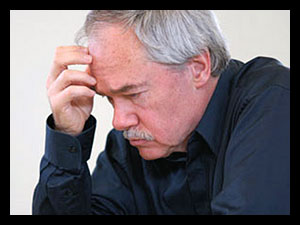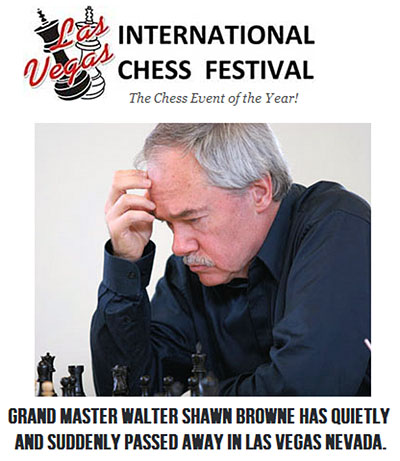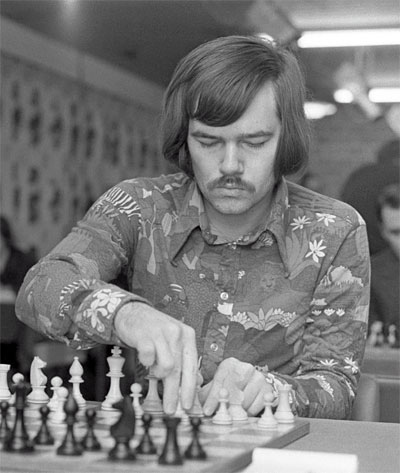



The Las Vegas International Chess Festival news page reports:
GM Browne had just finished playing in our 50th Anniversary National Open. He tied for 9th-15th. He played a 25 board simultaneous exhibition here at the Las Vegas International Chess Festival. He also taught at our chess camp and gave a lecture series. After the Chess Festival, Browne stayed the night at the home of his life-long friend, Ron Gross, who reported to us that Walter died suddenly in his sleep. We are shocked and saddened by this sudden loss.
Walter was a good man, a great friend, and a mentor to generations of players. He will be sorely missed, yet his games, his brilliance, his generosity, and his explorations of the games, as well as his presence will live on. Farewell Walter. We will remember you. Rest in Peace.
Walter Shawn Browne was born in Sydney, Australia, on January 10, 1949 of a US American father and an Australian mother. The family moved to New York when he was three, and Walter moved to California when he was 24. At the age of seventeen he won the U.S. Junior Championship, and at twenty the Australian Championship (for a time he represented both countries). That year, 1969, he represented Australia at the Asian Zonal tournament in Singapore, earning the International Master title – which earned him an invitation to an international grandmaster tournament in San Juan, Puerto Rico. There, he gained the grandmaster title by tying for second through fourth places, with Bruno Parma and Arthur Bisguier, behind reigning World Champion Boris Spassky.

Walter Browne playing for Australia in 1972
Walter Browne played first board for Australia at the 1970 and 1972 Chess Olympiads, before switching to representing the United States in 1974.

After his switch to the USCF in 1974
Browne won the U.S. Chess Championship six times. His victories were at Chicago 1974 (with 9½/13), Oberlin 1975 (8½/13), Mentor 1977 (9/13), Greenville 1980 (7½/12), South Bend 1981 (9/14) and 1983 (9/13). He qualified for three Interzonal tournaments, but never came close to qualification for the Candidates. At the Manila Interzonal 1976, Browne scored 8½/19 for 15th place. At the Las Palmas Interzonal 1982, he placed last of 14 contestants with 3/13. Finally, at the Taxco Interzonal 1985, he scored 6½/15 for a tied 9–13th place.
In six appearances Browne performed well at the Chess Olympiads. He represented Australia twice and the United States four times, winning a total of five medals, all bronze. He scored 55½/86 (+40 -15 =31), for 64.5 percent:
| Siegen 1970 | Australia board 1 | 14/19 (+10 –1 =8) | |
| Skopje 1972 | Australia board 1 | 17½/22 (+15 –2 =5) | board bronze |
| Nice 1974 | United States board 3 | 10½/17 (+7 –3 =7) | team bronze |
| Buenos Aires 1978 | United States board 2 | 4½/9 (+3 –3 =3) | team bronze |
| Lucerne 1982 | United States board 1 | 5½/10 (+4 –3 =3) | team bronze |
| Thessaloniki 1984 | United States board 4 | 3½/9 (+1 –3 =5) | team bronze |
Browne was a dominant presence in American chess in the 1970s and 1980s. Aside from the above results he won the National Open eleven times, the American Open seven times, the World Open three times, and the U.S. Open Chess Championship twice (1971 and 1972).
Browne also enjoyed many international successes from the early 1970s into the mid-1980s. His international firsts include Venice 1971, Wijk aan Zee 1974, Winnipeg 1974 (Pan American Championship), Lone Pine 1974, Mannheim 1975, Reykjavík 1978, Wijk aan Zee 1980, Chile 1981, Indonesia 1982 (shared with Ron Henley in a 26-player round-robin tournament), the 1983 New York Open, Gjovik 1983, and Naestved 1985.
Browne was inducted into the U.S. Chess Hall of Fame in 2003. He won the U.S. Senior Open in June 2005. In 2012 he published an autobiography and collection of his best games, The Stress of Chess ... and its Infinite Finesse.
Browne tended to spend a lot of his allotted time during the opening moves and early middlegame; consequently he often wound up in time trouble. This sometimes led to mistakes, even though Browne played reasonably well in time trouble; and good play during this phase could unsettle his opponents. A world-class speed chess player, Browne in 1988 formed the World Blitz Chess Association, but it ended in 2004 after encountering financial troubles.
Information and pictures from Wikipedia